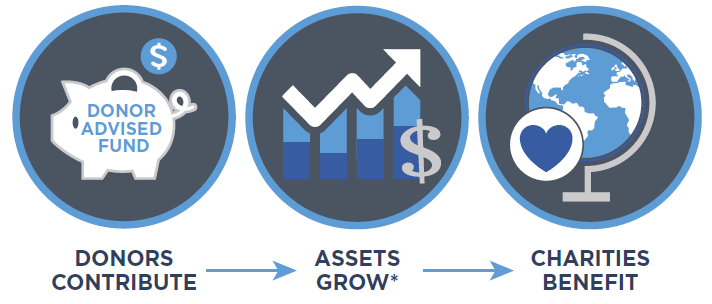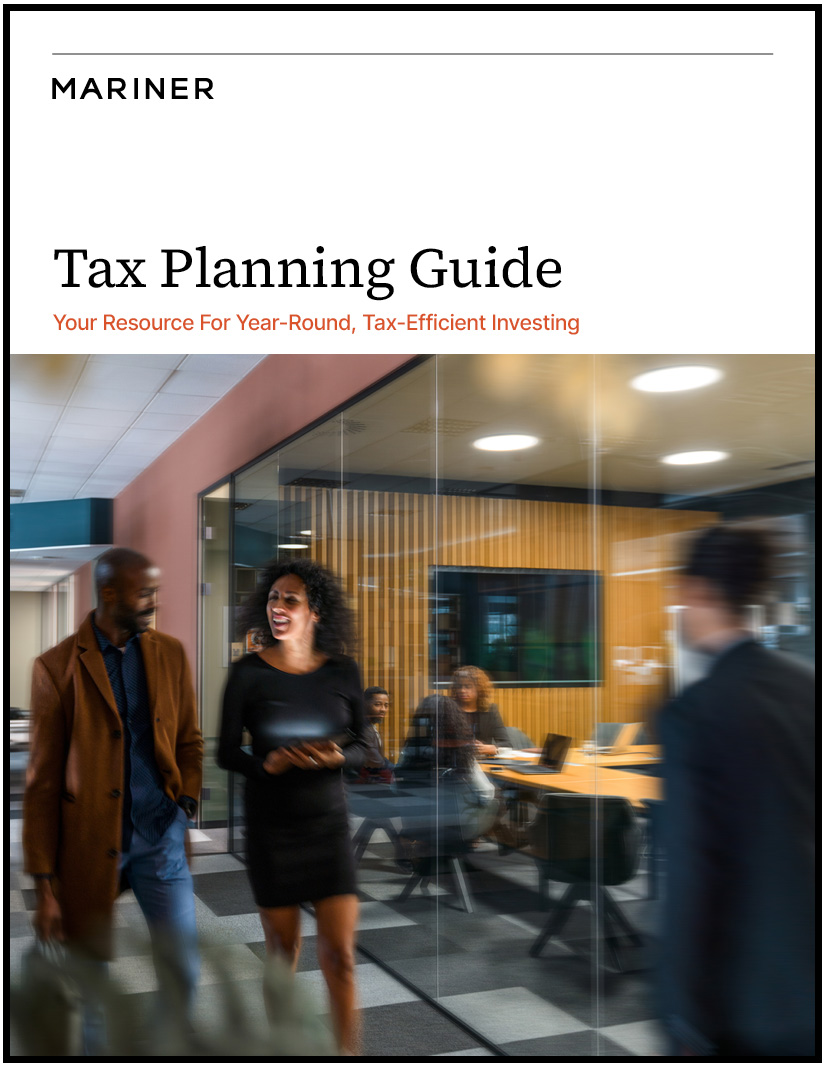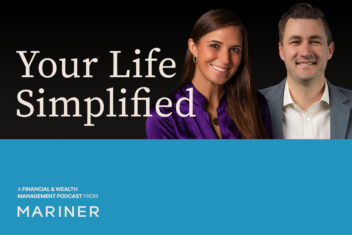Establish A Donor-Advised Fund: Give to Charities While Enjoying Tax Advantages

You may be wondering how you can minimize your tax burden and do some good at the same time. Creating a donor-advised fund (DAF) can offer you and your family a way to do both.
How They Work
It’s pretty easy to get started. Simply fill out an application and make an initial contribution to a DAF. Compared to a private foundation, which can have legal and other fees, a DAF doesn’t have start-up costs.
A tax-exempt sponsoring charity, also called a fund sponsor, owns and administers the fund for you, so you will have to pay some ongoing administrative and management fees. After you make contributions to the fund, you can start recommending grants for charities you and your family want to support.

*Contributions are subject to market fluctuations and there is no guarantee that assets will grow as shown above.
Tax Advantages
A DAF offers several tax advantages, including an immediate tax deduction on contributions, even if you wait until later to give a grant to your charity of choice. This deduction could help improve your tax picture.
Among the Tax Benefits:
- Donations grow tax-free.
- If you itemize your taxes, you can receive a tax deduction in the same year on donations of “non-cash,” or long-term appreciated assets (e.g., stocks, bonds and real estate), in the amount of the fair-market value, up to 30% of your adjusted gross income.1
- If you itemize your taxes, you can receive a tax deduction in the same year a donation is made of up to 60% of your adjusted gross income on cash donations.1
- When you donate securities held for more than a year at their fair market value, those securities are not subject to capital gains tax.
- You can receive a five-year carry-forward deduction on non-cash gifts that exceed AGI limit.
“Bunching Strategy”
Given the change in tax laws, you may have found that your typical annual contributions are no longer deductible. When you use a “bunching” approach with a DAF, you can donate multiple years to the fund at one time, which helps increase the likelihood you’ll be able to deduct the contributions.
Here’s how it works:
- Year 1: Contribute a large enough contribution into a DAF to help you exceed the standard deduction.
- Year 2: Take the standard deduction.
- Year 3: Repeat the process every other year or so to help maximize tax planning and charitable planning.
After you make these donations, you can arrange for distributions from the DAF to the charities of your choice.
Creating a Family Tradition
Together, you and your family can choose charities you believe in to receive a grant from the fund. By getting everyone involved in the decision, you can start a tradition of giving that could continue for generations to come.
Types of Assets You Can Contribute
You can contribute a variety of asset types to a DAF, including2:
- Cash
- Cash equivalents
- Publicly traded securities
- Certain restricted, controlled or lock-up stock
- Mutual fund shares
- Bitcoin and other cryptocurrencies
- Private equity and hedge fund interests
- Real estate
- Life insurance (as long as the DAF is the only owner and beneficiary)
- Certain complex assets including privately held C-corp and S-corp shares
- Closely held and family business interests
DAF Versus a Private Foundation
A DAF provides a less costly, alternative way for families to establish generational giving compared to a foundation, which can involve startup costs and time to set up, plus legal and other fees.
Distributions
Keep in mind that penalties and taxes may apply if the fund sponsor makes distributions to non-qualified individuals or entities. Consult with your wealth advisor if you have questions about distributions.
Estate Planning
You can choose to name your DAF as a beneficiary of retirement plans, life insurance policies, wills and trusts. In the fund agreement, you can name charities to receive distributions upon your death.
Work With Your Advisor
As you look at your wealth management plan with your advisor, discuss whether establishing a donor- advised fund makes sense for you and your family. With no startup costs and maintenance handled by the fund sponsor, it may be an affordable way for you to create a multi-generational charitable giving strategy while also enjoying tax benefits. Think about talking with your advisor about how an effective tax strategy, including investments like a DAF, might fit into your overall wealth management plan.
Tax Guide: Your Resource for Year-Round Tax-Efficient Investing
Year-round planning with an advisor could help improve your overall wealth plan. Find out more by downloading our tax guide.
1 “Giving Vehicle Comparison” nptrust.org: https://bit.ly/2JEdmzx
2 “What is a donor-advised Fund?” Fidelity Charitable. https://bit.ly/35VBtTT.
This article is limited to the dissemination of general information pertaining to Mariner Wealth Advisors’ investment advisory services and general economic market conditions. The views expressed are for commentary purposes only and do not take into account any individual personal, financial, or tax considerations. As such, the information contained herein is not intended to be personal legal, investment or tax advice or a solicitation to buy or sell any security or engage in a particular investment strategy. Nothing herein should be relied upon as such, and there is no guarantee that any claims made will come to pass. Any opinions and forecasts contained herein are based on information and sources of information deemed to be reliable, but Mariner Wealth Advisors does not warrant the accuracy of the information that this opinion and forecast is based upon. You should note that the materials are provided “as is” without any express or implied warranties. Opinions expressed are subject to change without notice and are not intended as investment advice or to predict future performance. Past performance does not guarantee future results. Consult your financial professional before making any investment decision.
Donor Advised Funds are subject to market fluctuation and there is no guarantee the invested assets will appreciate. Consult with your financial professional regarding market risk and choosing a risk tolerance that fits your needs.
Mariner is the marketing name for the financial services businesses of Mariner Wealth Advisors, LLC and its subsidiaries. Investment advisory services are provided through the brands Mariner Wealth, Mariner Independent, Mariner Institutional, Mariner Ultra, and Mariner Workplace, each of which is a business name of the registered investment advisory entities of Mariner. For additional information about each of the registered investment advisory entities of Mariner, including fees and services, please contact Mariner or refer to each entity’s Form ADV Part 2A, which is available on the Investment Adviser Public Disclosure website. Registration of an investment adviser does not imply a certain level of skill or training.


